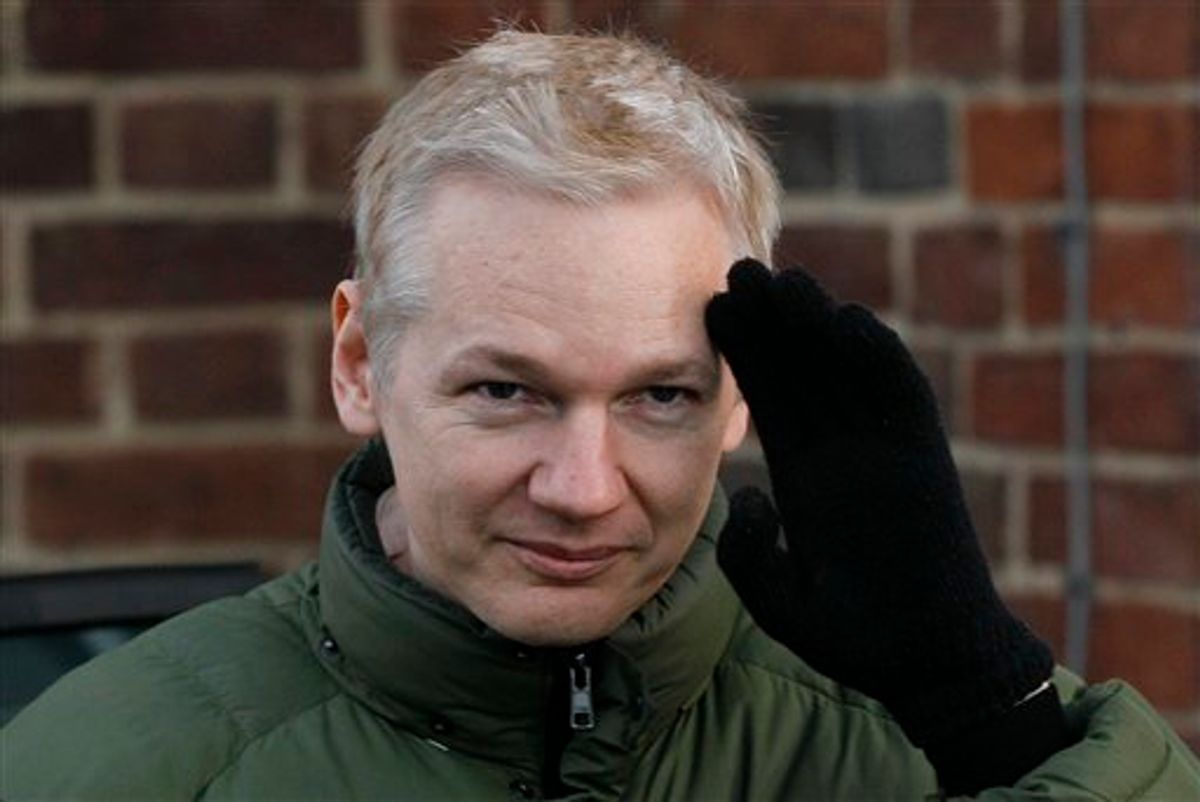Throughout this year I've devoted substantial attention to WikiLeaks, particularly in the last four weeks as calls for its destruction intensified. To understand why I've done so, and to see what motivates the increasing devotion of the U.S. Government and those influenced by it to destroying that organization, it's well worth reviewing exactly what WikiLeaks exposed to the world just in the last year: the breadth of the corruption, deceit, brutality and criminality on the part of the world's most powerful factions.
As revealing as the disclosures themselves are, the reactions to them have been equally revealing. The vast bulk of the outrage has been devoted not to the crimes that have been exposed but rather to those who exposed them: WikiLeaks and (allegedly) Bradley Manning. A consensus quickly emerged in the political and media class that they are Evil Villains who must be severely punished, while those responsible for the acts they revealed are guilty of nothing. That reaction has not been weakened at all even by the Pentagon's own admission that, in stark contrast to its own actions, there is no evidence -- zero -- that any of WikiLeaks' actions has caused even a single death. Meanwhile, the American establishment media -- even in the face of all these revelations -- continues to insist on the contradictory, Orwellian platitudes that (a) there is Nothing New™ in anything disclosed by WikiLeaks and (b) WikiLeaks has done Grave Harm to American National Security™ through its disclosures.
It's unsurprising that political leaders would want to convince people that the true criminals are those who expose acts of high-level political corruption and criminality, rather than those who perpetrate them. Every political leader would love for that self-serving piety to take hold. But what's startling is how many citizens and, especially, "journalists" now vehemently believe that as well. In light of what WikiLeaks has revealed to the world about numerous governments, just fathom the authoritarian mindset that would lead a citizen -- and especially a "journalist" -- to react with anger that these things have been revealed; to insist that these facts should have been kept concealed and it'd be better if we didn't know; and, most of all, to demand that those who made us aware of it all be punished (the True Criminals) while those who did these things (The Good Authorities) be shielded:
Christian Science Monitor, April 5, 2010:
The Guardian, October 22, 2010:
The Guardian, October 22, 2010:
Foreign Policy, November 29, 2010:
Mother Jones, December 1, 2010: 
TRANSLATION: U.S. maneuvered to stop High Court cases: American embassy issued threats over the cases of 'Guantanamo', 'Couso' and 'CIA flights' - Politicians and Spanish prosecutors collaborated on the strategy
Will Bunch, The Philadelphia Inquirer, responding to the cables from Spain, December 1, 2010:
Der Spiegel, December 9, 2010:
 Ellen Knickmeyer, ex-Washington Post Baghdad Bureau Chief, The Daily Beast, October 25, 2010:
Ellen Knickmeyer, ex-Washington Post Baghdad Bureau Chief, The Daily Beast, October 25, 2010:
Sydney Morning Herald, November 29, 2010:
The Guatemala Times, November 28, 2010:
The Guardian, November 30, 2010:
Eugene Robinson, The Washington Post, July 27, 2010:
Those are just some of the truths that led WikiLeaks -- and whoever the leaker(s) is -- to sacrifice their own interests in order to disclose these secrets to the world.






















Shares